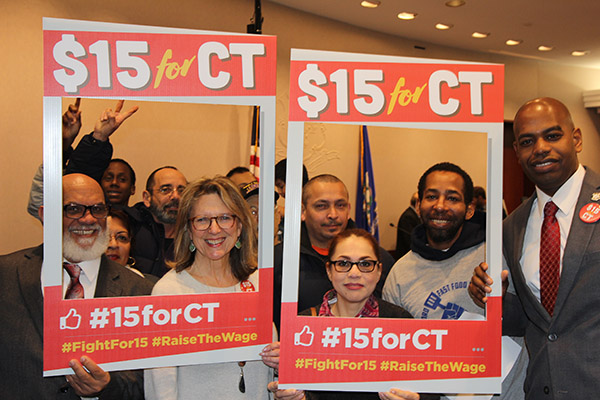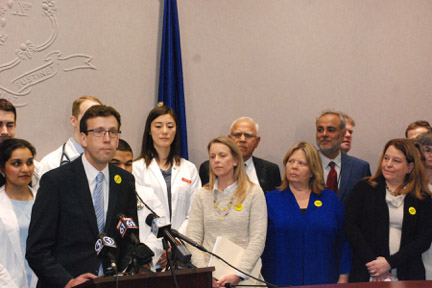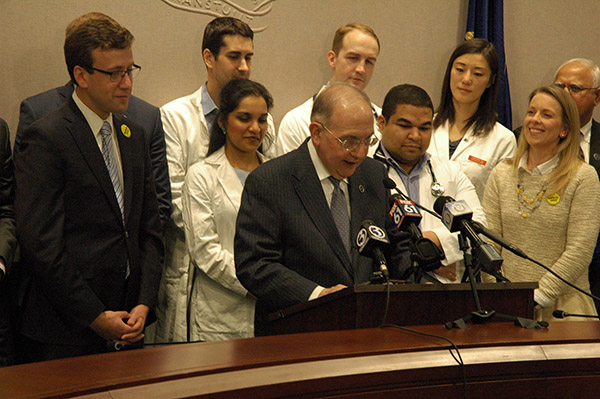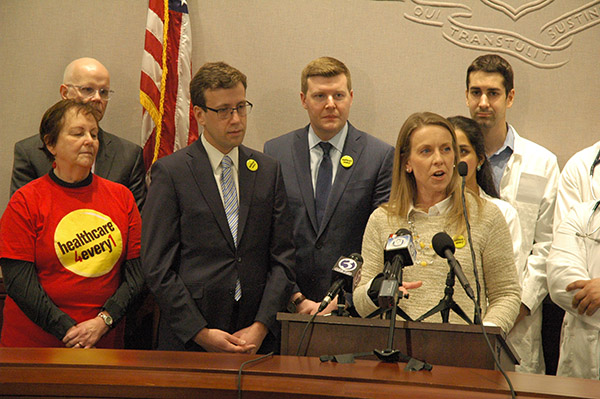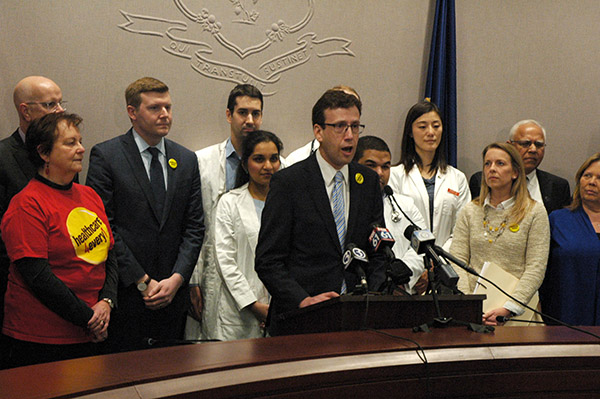Senator Needleman Lauds Advancement of Hemp Legislation
HARTFORD, CT – State Senator Norm Needleman (D-Essex) today lauded the advancement of legislation that would legalize the production of hemp in Connecticut.
The Environment Committee gave unanimous approval to two bills designed to get Connecticut’s hemp industry growing as soon as possible, providing a much-needed alternative cash crop for Connecticut farmers who could reap revenues of $37,000 to $150,000 per acre.
To jumpstart the process and get it moving as quickly as possible, Senate Bill 893 creates a pilot program directing Connecticut’s agriculture commissioner to adopt regulations for a pilot to study the growth, cultivation and marketing of industrial hemp in Connecticut.
Senate Bill 598 calls for the Connecticut Agriculture Department to submit regulations to the United States Department of Agriculture outlining Connecticut’s plan for the licensing, growing, cultivating, producing and processing of industrial hemp, and its proposed regulations for tracking and inspecting such farmland properties. The USDA is not expected to formulate its own federal hemp regulations until later this year, so any USDA review of Connecticut hemp regulations could be at least a year away.
“More than 100 farmers across our state are interested in growing hemp, so by legalizing its production, we can give them all access to a new and valuable crop,” said Sen. Needleman. “This legislation would give our state’s farmers a new opportunity toward economic success, additionally allowing our industries access to a material that’s long been known to be useful despite its illegality. Our businesses and our farmers’ success will have a ripple effect across our economy, bolstering Connecticut as a whole.”
At the March 5 public hearing on the two hemp bills, Connecticut Farm Bureau Association Executive Director Bryan Hulbert testified that the legalization of industrial hemp in Connecticut would be “a lifeline for the agricultural economy, providing a much-needed cash crop to a market that is strapped for cash and markets.”
The CTFBA estimates that an acre of hemp could generate 500 to 1,500 pounds of dried flowers per acre, generating gross revenues of $37,500 to $150,000 per acre.
“With these cost estimates, hemp would certainly be an attractive crop for Connecticut farmers,” Hurlburt said. “Having a high value crop would keep farmers on the land, be an incentive for farmers to put more land into production, attract new farmers to the industry, stabilize farm incomes, add business opportunities for agricultural support businesses, employ more people, support the opportunity for value-added production, and generate more revenue for the state.”
Chelsea Gazillo, director of the Working Lands Alliance, also testified in support of hemp’s many benefits.
“Among the most salient environmental benefits of hemp is it grows in variety of climates and soil types, which means this crop will do well on farms that have sub-prime soils,” Gazillo said. “Additionally, it is naturally resistant to most pests and grows in tight spaces, allowing it to out-compete most weeds. It can also be used as a natural substitute for cotton and wood fiber; hemp can be pulped using fewer chemicals than wood because of its low lignin content.”
While hemp and marijuana are both varieties of the cannabis plant, they are significantly different in one very important aspect: hemp contains less than one-third of one percent of THC (the intoxicating chemical in marijuana), while marijuana plants may contain up to 30% THC.
Hemp has been grown for centuries for use in clothes, paper, and rope. According to the Congressional Research Service, there are over 25,000 different uses for industrial hemp, including fibers, textiles, paper, construction and insulation materials, cosmetic products, animal feed, food and beverages.
The Hemp Industries Association notes that U.S. retail sales of hemp products totaled nearly $700 million in 2016; The Connecticut Hemp Association estimates more than 100 Connecticut farmers are interested in planting hemp.


